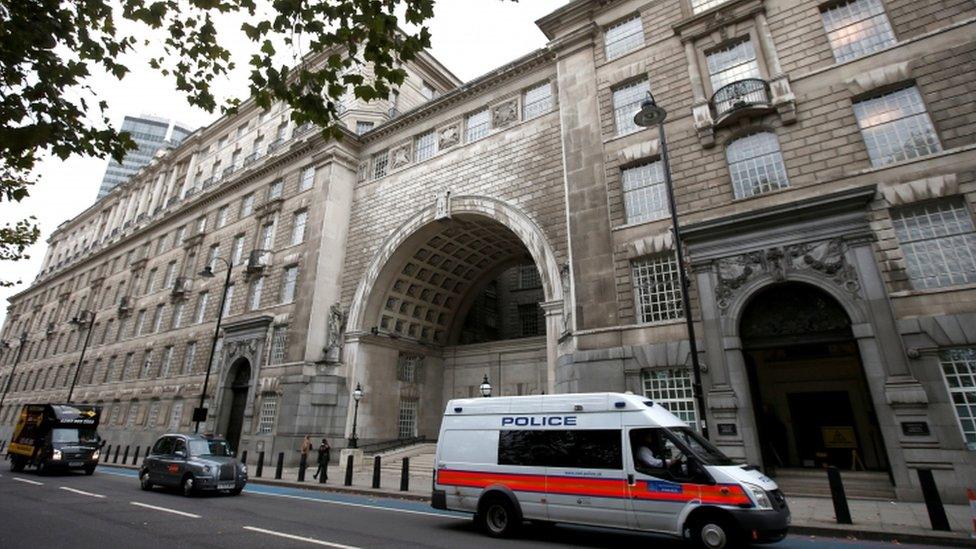Court bid to prevent BBC airing MI5 agent probe
- Published

The government wants to stop a BBC programme that alleges an MI5 agent is a dangerous extremist and misogynist, who abused two former female partners.
A High Court judgment published on Thursday revealed details of the previously-secret legal battle over whether the story can proceed.
Mr Justice Chamberlain said parts of the case must be heard in public.
A full hearing of the attorney general's request for an injunction against the BBC begins on 1 March.
Summarising the proposed story, Mr Justice Chamberlain said: "The BBC wants to broadcast a programme about an individual, "X".
"The programme is to include the allegations that X is a dangerous extremist and misogynist who physically and psychologically abused two former female partners.
"[The BBC will allege] that X is also a covert human intelligence source (variously referred to as a 'CHIS' or an 'agent') for the Security Service, MI5, that X told one of these women that he worked for MI5 in order to terrorise and control her - and that MI5 should have known about X's behaviour and realised that it was inappropriate to use him as a CHIS.
"The BBC says that the broadcast of this story, and the identification of X by name, is in the public interest."
National security claims
The judge said that the Attorney General, Suella Braverman QC, was seeking an injunction to prevent the BBC from broadcasting the programme while, at the same time, neither confirming nor denying in public whether X has ever worked for MI5.
"She submits, however, that irrespective of the truth of the allegation, the BBC's proposed broadcast would involve a breach of confidence... create a real and immediate risk to the life, safety and private life of X and damage the public interest and national security.
"The Attorney has also made clear that there would be no objection to a broadcast making allegations about MI5's use and management of agents without naming or otherwise identifying X or any particular individual.
"Nor would there be any problem with a broadcast making allegations about the conduct and dangerousness of X without identifying him as an alleged MI5 agent."
Mr Justice Chamberlain said he had not been convinced by arguments from the attorney general that he should ban the media and public from attending court.
Instead, parts of the case will be heard behind closed doors under a legal procedure designed to allow the UK's intelligence agencies to provide evidence to a judge, and other parts of the case will now be heard in public.
Telegraph 'briefing' probed
The judge said this decision was influenced by the government's failure so far to dispel the possibility that it had been the source for quotes in the Daily Telegraph warning about the BBC's intentions.
"The fact that a government source, whether acting with or without authority, appears to have briefed the press about this case has an impact on the extent to which it is necessary to sit in private to secure the proper administration of justice," said the judge.
"It would in principle be unfair to allow one party to put its own spin on a case without allowing the other party to put before the public even the basic factual elements of its defence.
"The question of damage to national security... has to be considered against that background."